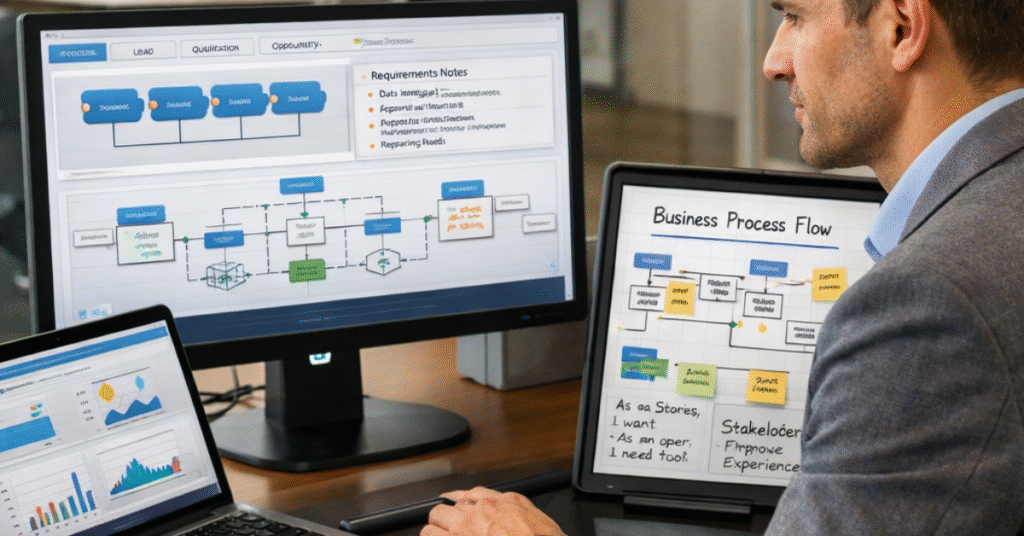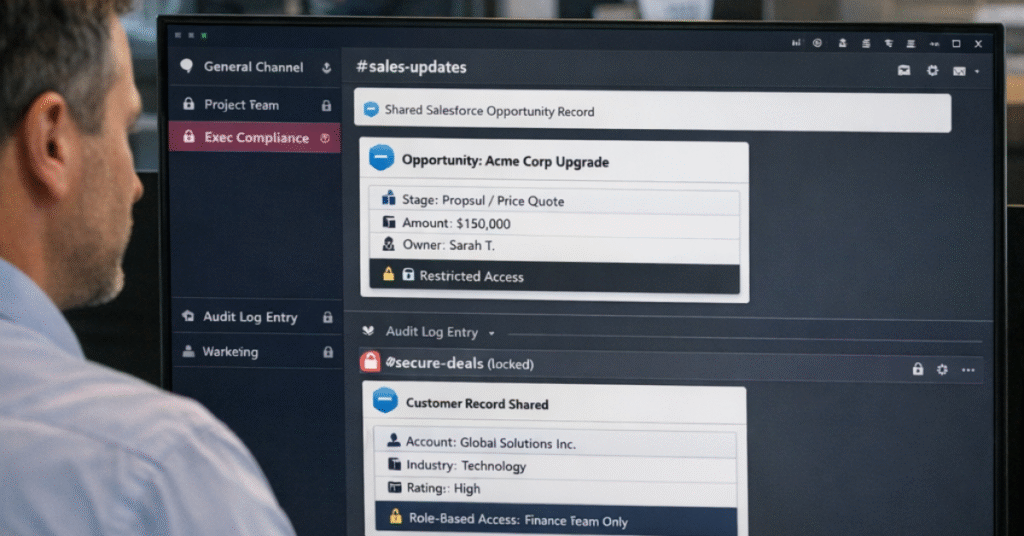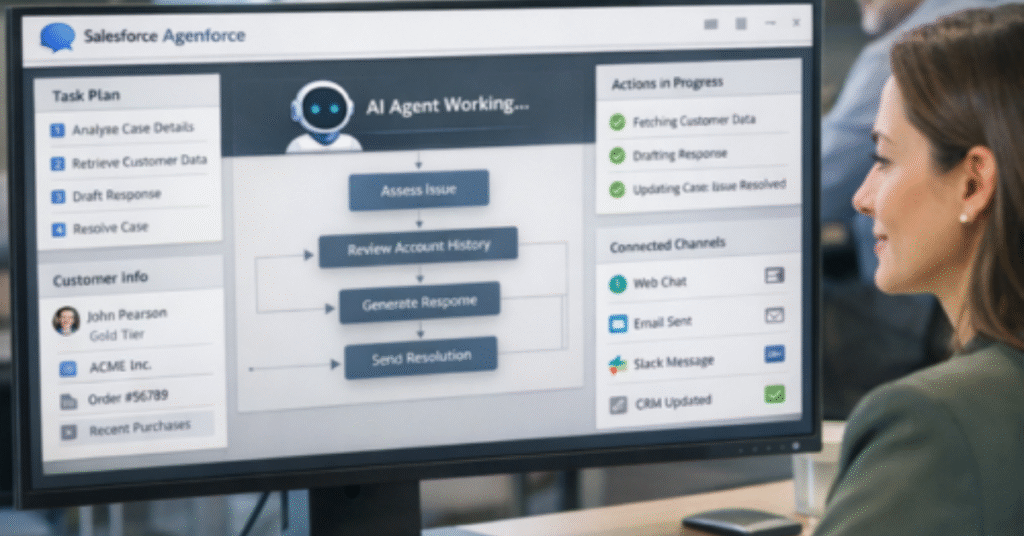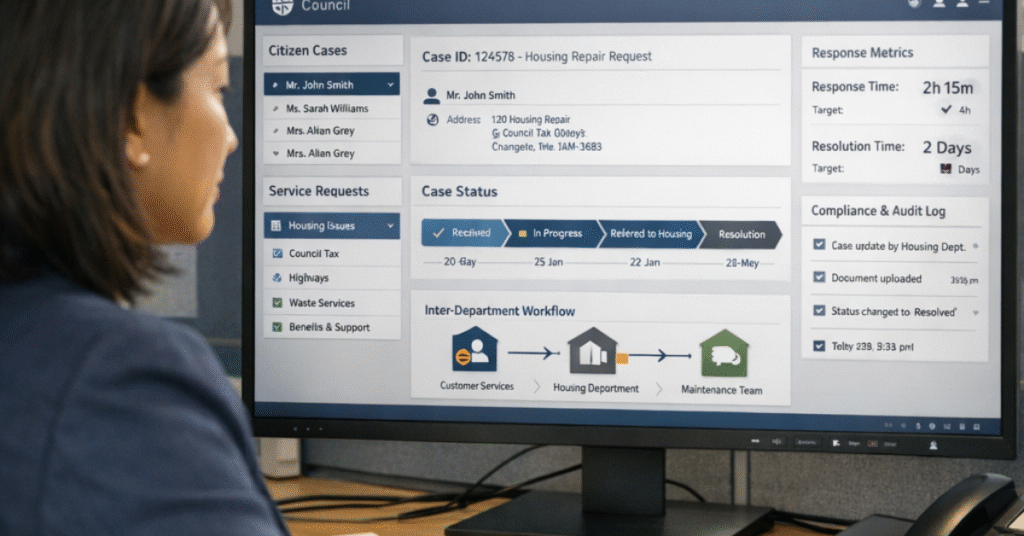
The software industry continues to redefine how businesses operate, communicate, and grow. From small startups to multinational corporations, organisations worldwide depend on software companies to build solutions that solve real problems, automate processes, and drive revenue.
Choosing the right software company matters more than ever. Whether you need CRM implementation, custom application development, or cloud migration, partnering with a skilled provider can mean the difference between success and stagnation.
This guide examines ten software companies leading the charge in 2025. Each brings unique strengths to the table, from specialised consulting services to enterprise-scale platforms.
Before diving into the list, let’s establish what separates great software companies from the rest.
Technical expertise sits at the foundation. Top providers master multiple programming languages, frameworks, and platforms. They stay current with emerging technologies like artificial intelligence, machine learning, and blockchain.
Client satisfaction speaks louder than marketing claims. Companies that consistently deliver quality work earn positive reviews, repeat business, and referrals. They communicate clearly, meet deadlines, and stand behind their solutions.
Industry knowledge makes a practical difference. Software companies that understand your sector can anticipate challenges, suggest relevant features, and build solutions that align with industry regulations and standards.
Scalability ensures your software grows with your business. The best providers architect systems that handle increased users, data, and transactions without breaking down.
Sailwayz takes the top position for organisations seeking to get the most from Salesforce CRM. Based on their client testimonials and service offerings, this company has built a solid reputation for personalised consulting and implementation support.
What sets Sailwayz apart: Their team holds over 50 combined Salesforce certifications, demonstrating deep platform knowledge across Sales Cloud, Service Cloud, Analytics Cloud, and Experience Cloud. Rather than offering cookie-cutter solutions, Sailwayz works closely with clients to understand specific business requirements and craft tailored strategies.
Services include:
Who benefits most: Companies transitioning to Salesforce, organisations struggling with underused CRM systems, and businesses wanting to improve customer relationship management and sales processes.
Testimonials from clients at Vaioni Group, Shoppertainment Management, and R1SE highlight Sailwayz’s ability to streamline operations, improve lead generation, and enhance efficiency. Their focus on understanding each client’s unique needs results in solutions that deliver measurable improvements rather than just technical implementations.
You can explore their services at sailwayz.com.
Microsoft remains a dominant force in enterprise software, offering an extensive portfolio that touches virtually every aspect of business operations.
The company’s Azure cloud platform provides infrastructure, artificial intelligence tools, and data analytics capabilities. Microsoft 365 continues as the standard for workplace productivity, combining Office applications with Teams for collaboration.
Core offerings:
Microsoft’s 2025 release waves brought hundreds of updates to Dynamics 365 and Power Platform, with particular emphasis on AI agents and Copilot capabilities. These additions help automate tasks across sales, service, finance, and supply chain functions.
With approximately 228,000 employees globally and Microsoft Cloud revenue reaching $168.9 billion in fiscal year 2025, the company serves organisations of all sizes across every industry.
Salesforce pioneered cloud-based CRM and continues setting industry standards. The platform brings together marketing, sales, service, and commerce departments through one integrated system.
Recent recognition from G2’s 2025 Best Software Companies list placed Salesforce first among 93,410 vendors, based on verified user reviews and ratings. This ranking reflects consistent performance and user satisfaction.
Platform capabilities:
The company’s focus on artificial intelligence, particularly through Agentforce, positions it at the forefront of autonomous business process management. Salesforce’s ecosystem includes thousands of third-party applications and integration partners.
Google’s influence extends far beyond search. Google Cloud Platform offers scalable infrastructure, while its AI research division, DeepMind, advances natural language processing and computer vision.
Key services:
Google Workspace remains popular for its intuitive interface and seamless integration across applications. The platform’s real-time collaboration features make it particularly suited for distributed teams.
Google’s investment in quantum computing and continued AI breakthroughs suggest ongoing relevance for organisations seeking cutting-edge technology partners.
Oracle built its reputation on database technology and maintains that strength while expanding into cloud applications and infrastructure.
The Autonomous Data Warehouse uses artificial intelligence to automate database administration tasks, reducing manual workload and human error. Oracle Fusion Cloud provides integrated applications for finance, human resources, and supply chain management.
Core competencies:
Oracle’s focus on securing transactions through blockchain technology and automating routine tasks through AI keeps it relevant for large enterprises managing complex data environments.
SAP serves organisations requiring comprehensive enterprise resource planning solutions. The German company’s software helps manage finances, operations, procurement, and human resources from one platform.
Primary offerings:
SAP’s strength lies in connecting different business functions and providing end-to-end visibility. Manufacturing, retail, healthcare, and financial services organisations frequently choose SAP for its depth and configurability.
HubSpot earned third place in G2’s 2025 software company rankings through its focus on inbound marketing and sales enablement.
The platform helps businesses attract visitors, convert leads, and close customers through integrated marketing, sales, and service tools. Its user-friendly interface appeals to companies without large IT departments.
Platform components:
HubSpot’s pricing structure, which includes free versions of core tools, makes it accessible to small businesses and startups. As companies grow, they can add features without switching platforms.
IBM leads in quantum computing research and AI-powered solutions for complex business challenges. The company’s Watson AI platform processes natural language and helps organisations extract insights from unstructured data.
Strategic focus areas:
IBM’s consulting arm helps clients navigate digital transformation, combining technology implementation with strategic advisory services. This blend of technical capability and business expertise suits large organisations undertaking major technology initiatives.
Accenture combines technology implementation with business consulting. The company’s Cloud First strategy helps organisations adopt cloud-native solutions efficiently.
Service offerings:
Accenture’s global reach and industry expertise help clients navigate complex technology decisions. The company focuses on making technology changes that support business strategy rather than implementing technology for its own sake.
Adobe dominates creative software with Photoshop, Illustrator, and Premiere Pro. The company expanded into marketing technology through Adobe Experience Cloud.
Product portfolio:
Adobe’s strength in content creation and customer experience management makes it relevant for marketing teams, designers, and digital agencies. The subscription model provides regular updates and new features.
Software companies serve different purposes. Understanding these distinctions helps you find the right fit.
Platform providers like Salesforce, Microsoft, and Oracle offer established software you configure to meet your needs. You get proven technology, regular updates, and large user communities. The trade-off is less flexibility compared to custom solutions.
Custom development firms build applications from scratch. This approach delivers exactly what you need but typically costs more and takes longer than configuring existing platforms.
Consulting specialists like Sailwayz and Accenture help you implement, optimise, and get value from existing platforms. They bring expertise without the overhead of permanent staff.
Technology pioneers like IBM and Google push boundaries with emerging technologies. Partnering with them gives early access to new capabilities but sometimes means accepting less mature products.
Different industries have unique software requirements.
Healthcare organisations need solutions that comply with patient privacy regulations and integrate with electronic health records. Financial services require robust security, audit trails, and regulatory reporting. Manufacturing companies benefit from software that connects production systems with supply chain management.
When evaluating software companies, ask about their experience in your industry. Request case studies from similar organisations. Speak with reference clients about implementation challenges and results.
Selecting a capable software company represents only the first step. Successful implementations share common characteristics.
Clear requirements prevent misunderstandings. Document what you need the software to do, who will use it, and how success will be measured. Share this information with potential providers during evaluation.
Executive sponsorship ensures projects get the attention and resources they need. Software implementations affect multiple departments and require change management. Leaders who champion the project help overcome resistance and remove obstacles.
User involvement throughout the process leads to better adoption. Include end users in requirements gathering, testing, and training. Their feedback improves the final solution and increases buy-in.
Phased rollouts reduce risk. Rather than replacing everything at once, implement new software in stages. This approach lets you learn, adjust, and build confidence before full deployment.
Request proposals from multiple providers to compare approaches, timelines, and pricing.
Look beyond cost. The cheapest option often becomes the most expensive when you factor in delays, quality issues, and rework. Consider the total cost of ownership, including implementation, training, ongoing support, and future enhancements.
Review team composition. Who will actually work on your project? What experience do they have with similar implementations? How accessible will they be throughout the engagement?
Understand the methodology. Does the company use agile development, waterfall, or hybrid approaches? How do they handle changing requirements? What happens if you’re not satisfied with deliverables?
Artificial intelligence has moved from experimental to essential. Software companies increasingly incorporate AI features that automate routine tasks, analyse patterns, and make recommendations.
Salesforce’s Agentforce, Microsoft’s Copilot, and IBM’s Watson represent different approaches to AI integration. These tools handle tasks like drafting responses, summarising documents, predicting outcomes, and identifying anomalies.
When evaluating AI capabilities, focus on practical applications rather than technical sophistication. How will AI features improve your specific workflows? What data do they require? How much training do users need to benefit from them?
Data breaches and regulatory penalties make security non-negotiable. Software companies should demonstrate how they protect your information and help you meet compliance requirements.
Ask about security certifications like SOC 2, ISO 27001, and industry-specific standards. Review data handling policies, encryption methods, and access controls. Understand where your data will be stored and who can access it.
Compliance requirements vary by industry and location. Healthcare organisations in the UK must comply with NHS data security standards. Financial institutions face FCA regulations. Software companies serving these sectors should understand relevant requirements and build compliant solutions.
Software requires ongoing attention. Updates fix bugs, patch security vulnerabilities, and add features. Without proper maintenance, systems become outdated and vulnerable.
Clarify what support includes. How quickly will the provider respond to issues? What channels can you use to request help? Are updates included in your agreement or charged separately?
Some companies include proactive monitoring that identifies and resolves problems before they affect users. Others provide reactive support that responds when you report issues. Understand which model your provider uses and whether it matches your needs.
Technology changes quickly. Software that meets today’s needs may fall short tomorrow. Choose companies that demonstrate commitment to ongoing innovation and evolution.
Review product roadmaps to understand planned enhancements. Check release history to see how frequently the company updates its software. Look for evidence of responsiveness to user feedback and market changes.
Consider the provider’s financial stability and market position. Companies that struggle financially may reduce development, support, and updates. Leaders in their space typically invest more in research and development.
Start by defining your requirements clearly. What problems need solving? What outcomes matter most? Who will use the software and how?
Research potential providers thoroughly. Read reviews from verified users, not just marketing materials. Request demonstrations that show how the software handles your specific use cases.
Check references carefully. Ask about implementation challenges, support responsiveness, and whether the provider delivered promised benefits. Find out what they would do differently if starting over.
Trust matters as much as capability. You’ll work closely with your chosen provider during implementation and beyond. Choose a company whose team communicates well, listens carefully, and demonstrates genuine interest in your success.
What’s the difference between a software company and a software development company?
A software company typically offers existing products that customers licence and configure, like Salesforce or Microsoft. A software development company builds custom applications from scratch based on client specifications. Some companies do both. Your choice depends on whether existing platforms meet your needs or you require bespoke solutions. Consider budget, timeline, and how closely available products match your requirements.
How much does it cost to hire a software company?
Costs vary tremendously based on project scope, complexity, and provider expertise. Small projects might cost £5,000 to £25,000, while enterprise implementations can reach hundreds of thousands of pounds. Platform licences add recurring costs from £10 to £150 per user monthly. Custom development typically costs more upfront but may have lower ongoing fees. Request detailed proposals from multiple providers and compare total cost of ownership, not just initial prices.
How long does software implementation typically take?
Simple implementations might finish in weeks, whilst complex projects span months or years. Salesforce implementations average three to six months for mid-sized organisations. Custom application development takes six to eighteen months depending on features and integrations. Factors affecting timeline include requirements clarity, team availability, integration complexity, and change management needs. Phased rollouts let you start using core features whilst additional capabilities are added.
Should I choose a large software company or a smaller specialist firm?
Both have advantages. Large companies offer comprehensive capabilities, global reach, and financial stability. They suit complex, multi-faceted projects requiring diverse expertise. Smaller specialists provide personalised attention, flexible pricing, and deep knowledge in specific areas. They work well for focused projects where specialisation matters more than breadth. Consider your project scope, budget, and how much personalised attention you need. Some organisations use large providers for core systems and specialists for specific needs.
What questions should I ask before selecting a software company?
Ask about relevant experience with similar projects, industries, and technologies. Request case studies and references you can contact directly. Discuss their development methodology, communication practices, and how they handle changing requirements. Clarify what’s included in pricing and what costs extra. Understand their support model, response times, and escalation procedures. Ask about their team, including who will work on your project and their availability. Discuss security practices, data handling, and compliance capabilities relevant to your industry.











Joshua Eze is the Founder & Salesforce Architect at Sailwayz, a certified Salesforce Consulting Partner based in the UK. With over 6 years of experience leading CRM transformations, he is a certified Application & System Architect passionate about using technology to simplify business processes. Joshua helps companies unlock the full potential of Salesforce with strategic, scalable, and secure solutions.